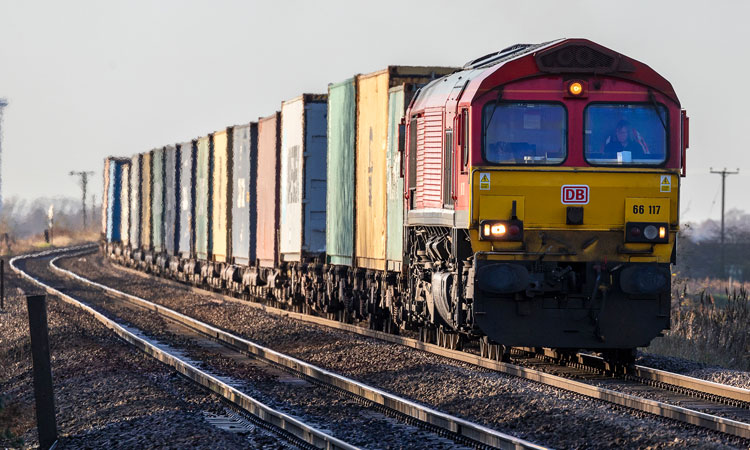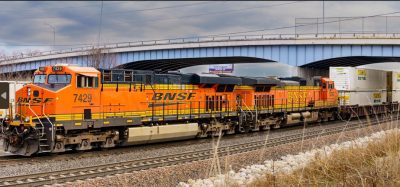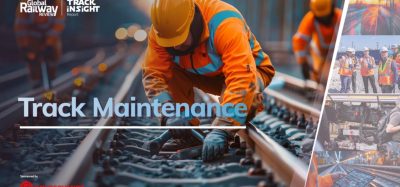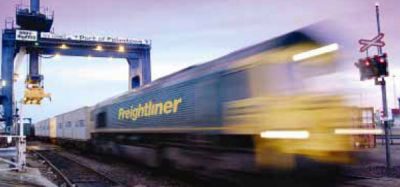Reducing noise and vibrations from rail freight – what more can be done?
Posted: 16 December 2020 | Zoe McLernon | No comments yet
Zoe McLernon, Multimodal Policy Manager at Logistics UK, shares the challenges surrounding noise disturbance caused by rail freight operations and explores the areas that Logistics UK recommends that government and industry should focus on to help keep noise and vibration to a minimum.


While the UK Parliament recognises that railway operations will always give rise to a degree of unavoidable noise and vibrations, operators still have a responsibility to minimise disturbance wherever possible. It is vital that they demonstrate that they have used ‘due diligence’ to control any potential disruption to the local community caused by their movements. But what are the challenges surrounding noise disturbance caused by rail freight operations and what areas does Logistics UK – as the business group representing the logistics industry – recommend that government and industry focus on to help keep noise and vibration to a minimum?
What is being done?
Noise pollution can affect our mental and physical health, so reducing disturbance from UK railways is a key issue for government and industry to overcome. Most railway noise can be attributed to older, heavy freight trains ‘rolling’ on the tracks, but noise from equipment, brakes, depots and aerodynamics, as well as curve squeal, are also contributors. When government and rail operators consider new rail paths, planning applications and the placement of Strategic Rail Freight Interchanges (SRFI), potential noise and vibration implications to the local community are also considered. Network Rail reviews its rail tracks regularly and undertakes maintenance where needed to limit or eradicate the impact of vibrations on nearby buildings. Noise production varies according to the environment, with operators needing to consider the impact that certain factors – such as the landscape, traffic density and population levels – could have on the management of disturbance levels. Because of these variations, a tailored approach to each stretch of line is required.
The International Union of Railways’ (UIC) Network of Noise and Vibrations (NNV) promotes the effective management of railway noise and vibrations in the context of sustainable development. Its work includes evaluation, review and providing guidance on upcoming new noise and vibration legislative initiatives and mitigation policy ideas and incentives, such as noise differentiated track access charges, prohibition of cast iron brake blocks and rail dampers.
What more can be done?
There are three key approaches to reducing disturbance from rail operations, all requiring the need for continued innovation, research and development. They comprise: Trackside mitigation measures, such as installing noise barriers and insulation; track design and maintenance, including implementing low noise breaks and track damping; and, finally, planning and building, which includes developing quieter trains and noise reduction infrastructure.
The Institute of Sound and Vibration Research at the University of Southampton is leading research into railway noise and vibration with its TWINS model (Track Wheel Interaction Noise Software). This tool has been developed over several years to provide a theoretical model of rolling noise generation. The model is being used to study the effect of different wheel and track design changes on the noise produced.
Continued research and development into noise reduction technologies remains vital. While many noise reduction technologies have been developed and are in use already in other industries, it is important that their suitability for rail freight be examined and, if appropriate, transferred and tailored for rail use. While there have been several government and industry initiatives to reduce noise for passenger services, at Logistics UK, we want to see more measures developed for rail freight specifically.
EU countries are expected to make great strides in noise reduction measures, with the European Parliament Committee on Transport and Tourism (TRAN) announcing in October 2020 its plans to dedicate 2021 as the European Year of Rail. Complimenting the ambitions of the European Green Deal – which calls for a significant amount of the 75 per cent of inland freight currently carried by road to be shifted onto rail and inland waterways – TRAN will seek solutions for noise reduction to help rail reach its full potential as a primary form of transportation.
Looking to the future
As we look further into the future of railways, trains powered by hydrogen and electricity will become commonplace, replacing the diesel trains of old. Although there are only two ‘hydro’ trains in active service globally, the Department for Transport (DfT) recently awarded a project to develop the UK’s first hydrogen powered train with an additional £400,000 to fund the final production design and testing of the ground-breaking vehicle. Electrification of the rail network has further advanced, with 42 per cent of the UK’s railways now electrified and firm plans in place to enhance coverage nationally.
In addition to environmental benefits, electric and hydrogen trains also run quietly; a vast improvement to the noise and vibration created by their diesel-run counterparts. In October 2020, the House of Commons’ Transport Select Committee announced that it has restarted its Trains Fit for the Future inquiry, which will investigate how best to transition rail away from a reliance on diesel permanently, towards the use of electric, hydrogen and battery power sources.
While noise pollution and vibrations from the UK’s railways remains a key issue, with a focus on innovation, research and development, at Logistics UK, we are confident that quieter rail freight operations will soon be a reality on the network.
Logistics UK
Logistics UK (formerly FTA) is one of the UK’s leading business groups, representing logistics businesses which are vital to keeping the UK trading, and more than seven million people directly employed in the making, selling and moving of goods. With COVID-19, Brexit, new technology and other disruptive forces driving change in the way goods move across borders and through the supply chain, logistics has never been more important to UK plc. Logistics UK supports, shapes and stands up for safe and efficient logistics, and is the only business group which represents the whole industry, with members from the road, rail, sea and air industries, as well as the buyers of freight services, such as retailers and manufacturers, whose businesses depend on the efficient movement of goods. For more information about the organisation and its work, including its ground‑breaking research into the impacts of COVID-19 on the whole supply chain, please visit the Logistics UK website.


The rest of this content is restricted - login or subscribe free to access
Thank you for visiting our website. To access this content in full, you will need to log in. It is completely free to subscribe and, in less than a minute, you can continue reading. If you have already subscribed, just log in.
Why subscribe? Join our growing community of thousands of industry professionals and gain access to:
- Bi-monthly issues in print and/or digital format
- Case studies, whitepapers, webinars and industry-leading content
- Breaking news and features
- Our extensive online archive of thousands of articles and years of past issues
- And it's all free!
Click here to Subscribe today Login here







